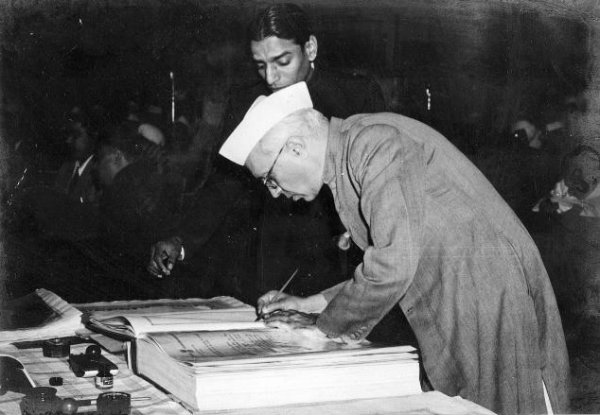
- Indian Polity Tutorial
- Indian Polity - Home
- Indian Polity - Introduction
- Indian Polity - Constitution Formation
- Indian Polity - Constitution Features
- Guiding Values of the Constitution
- Indian Polity - Sources of Constitution
- Polity - How the Constitution Works
- Indian Polity - Union & Its Territory
- Indian Polity - Citizenship
- Indian Polity - Fundamental Rights
- Indian Polity - Directive Principles
- Indian Polity - Fundamental Duties
- Indian Polity - Union Executive
- Indian Polity - Union Legislature
- Indian Polity - Local Government
- Indian Polity - Judiciary
- Indian Polity - Federal System
- Indian Polity - Center State Relation
- Indian Polity - Emergency Provision
- Indian Polity - Elections System
- Indian Polity - Political Parties
- Constitutional Amendments
- Indian - Constitutional Schedules
- Indian Polity - Separation of Powers
- Indian Polity - Parts of Constitution
- Polity - International Organizations
- Indian Polity - Environment & Politics
- Indian Polity - Globalization
- Indian Polity - Popular Movements
- Indian Polity - Foreign Policy
- Indian Polity Useful Resources
- Indian Polity - Online Quiz
- Indian Polity - Online Test
- Indian Polity - Quick Guide
- Indian Polity - Useful Resources
- Indian Polity - Discussion
Indian Polity - Constitution Formation
Historical Background
In 1928, Motilal Nehru and eight other Congress leaders drafted a constitution for India.

In 1931, Indian National Congress in its session at Karachi passed a resolution on how the constitution of independent India should look like.
Both these two documents have included the right of universal adult franchise, right to freedom and equality, and to protecting the rights of minorities.
Later, the provisions of these documents provided a background of the certain basic values, which were accepted by all leaders and included in the constitution of independent India.
British rule had introduced weak legislatures in India by the given voting rights to a few elite persons only.
Elections were held in 1937 to Provincial Legislatures all over British India, which were not fully democratic governments. However, the working with these legislative institutions provided useful experience to Indians, which helped in setting up native institutions in independent India.
Like South Africa, India’s Constitution was also drawn up under very difficult circumstances.
The makers of the Indian Constitution have adopted its fundamental structure from the Government of India Act 1935.
The Constituent Assembly
The Constituent Assembly was the body of elected representatives of the people of India.
Elections for the Constituent Assembly were held in July 1946 and its first meeting was convened in December 1946.
On Partition, the Constituent Assembly was also divided into two parts called as the Constituent Assembly of India and the Constituent Assembly of Pakistan.
The Constituent Assembly of India that drafted the Indian Constitution had 299 members.
The Constituent Assembly of India had adopted the Constitution on 26 November 1949, but it came into effect on 26 January 1950.
Factors of Constitution Formation
The factors that contributed to the making of Indian Constitution were −
French Revolution;
Parliamentary democracy in Britain;
Bill of Rights in the US; and
Socialist revolution in Russia.